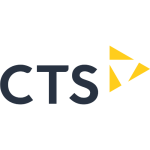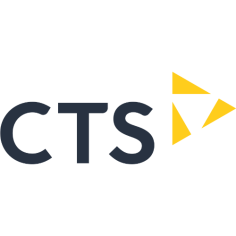Deal with disaster
As business growth goes, McMillan Williams Solicitors has certainly had a pretty fair share. When chief information officer David Fazakerley arrived less than five years ago, the business he took on had 10 offices and 160 staff. Today it has nearly tripled that – 28 offices, with a proportionate increase in revenue to £30m. Headcount, meanwhile, is nearly at the 500 mark.
But that pace of expansion also needs to be matched by the right investment in operational improvement and risk management. He says: “Over the years, we’ve invested a lot in technology that’s scalable – and really fit for a £50m operation – and in particular, the resilience of our systems now needs to be higher than if we were still a smaller firm. We’re now too big to fail.” Similarly, the business can’t afford long-term outages or disruption of continuity of service – which of course could well be a precursor to such a disastrous scenario.
“Even a primary data centre with plenty of backup is no longer enough,” he explains. “We wanted at least two other options – a three-data centre strategy.” One of these is a replica of the entire environment, with data replication every three hours and system recovery in four hours. “The operation now needs to be back up and running within hours, rather than days,” he says. And the third pillar is a complete data repository in a virtualisation environment for daily backups.
Test of time
The firm had, in fact, already gone through a full review and selection process when it encountered Converge Technology Specialists (Converge TS) as a possibility for meeting these demands in 2017. Fazakerley discovered Converge TS was now a strategic alliance partner of Thomson Reuters Elite (McMillan Williams is a 3E and MatterSphere firm), and he decided to allow it to have a shot in the final hour.
“I particularly liked that they have such a strong and strategic legal focus and, to be honest, I was still a little uneasy about one or two points with the other suppliers. So, we gave Converge TS the specification and three days to complete it,” he laughs. Not only did they successfully turn it around in the time, he says. It was both “fully costed and high quality.”
But even this wasn’t the factor that sealed the deal. Colleagues now headed over for a site visit. “There was instant rapport – they liked them as individuals, there was an appreciation for the technical expertise of the Converge TS team, we saw the due diligence and how they had worked with other clients, and it inspired real confidence,” he says. “The key reason we chose Converge TS is definitely the people.”
Save the data
At this point, things moved quickly – fortunately, this is a firm used to that. The centres went up in Manchester and, after establishing connectivity, the failover testing process is now about to begin.
Alongside the quality of service (and at a fair price, says Fazakerley), and undiluted legal specialism, location was another factor.
“Regulation about what you can and can’t do with data continues to change – most recently, of course, we have the GDPR coming into force,” he says. “The Converge TS operations are all housed here in the UK, so there’s no need to be concerned with any potential cross-border issues.”
Regardless of regulation evolving to keep pace, however, cybercrime shows no sign of being beaten any time soon. “We know that professional services are being particularly targeted by criminals – and that means we need to take steps to protect our clients as well as ourselves,” says Fazarkerley. The resilience built into the backup datacentres is as much to save our clients’ data as it is to protect the firm’s ability to provide a superior service with minimal disruption and delay.
He adds that, fast-growing or not, law firms are also arguably at greater risk as they pursue other strands of IT strategies, such as driving out efficiencies with process automation and pushing on with paper-light plans. All that digitisation means even more data to manage properly and protect from theft, loss, or loss of access.
On from disaster
Fortunately, now that Converge TS has a confident foot in McMillan Williams’ many doors, there is scope for the relationship to expand beyond disaster recovery into other key areas of support.
“I suddenly have an extra specialist resource – they can be another good pair of eyes on what would be best practice. They’re helpful and informative, and I’m happy for them to be an extension of the team.”
For example, boasting a fully mobile legal workforce – MW fee earners all have huge flexibility, working out of any office in the network – Fazakerley is now implementing other solutions around two-factor authentication.
“Everything has been built with flexibility in mind, but also with security to match.” He also plans to improve the backup provision within the primary data centre.
When all’s said and done, he says, with a business like Converge TS supporting a business like his: “If you’ve done enough backups – and they haven’t been hacked – yes, you can recover.
“How long that recovery takes is quite another question. In some cases we’ve heard of, the answer has been weeks, and when you’re dealing with client information and court dates that could be enough to send a business over the edge.
“You need to be back in business not in weeks or days, but within hours and minutes – and with Converge TS providing our business continuity and disaster recovery, that’s what we have at MW Solicitors.”
This article appeared in Briefing May 2018. Read the full edition of Briefing May 2018: Feel the path here.



